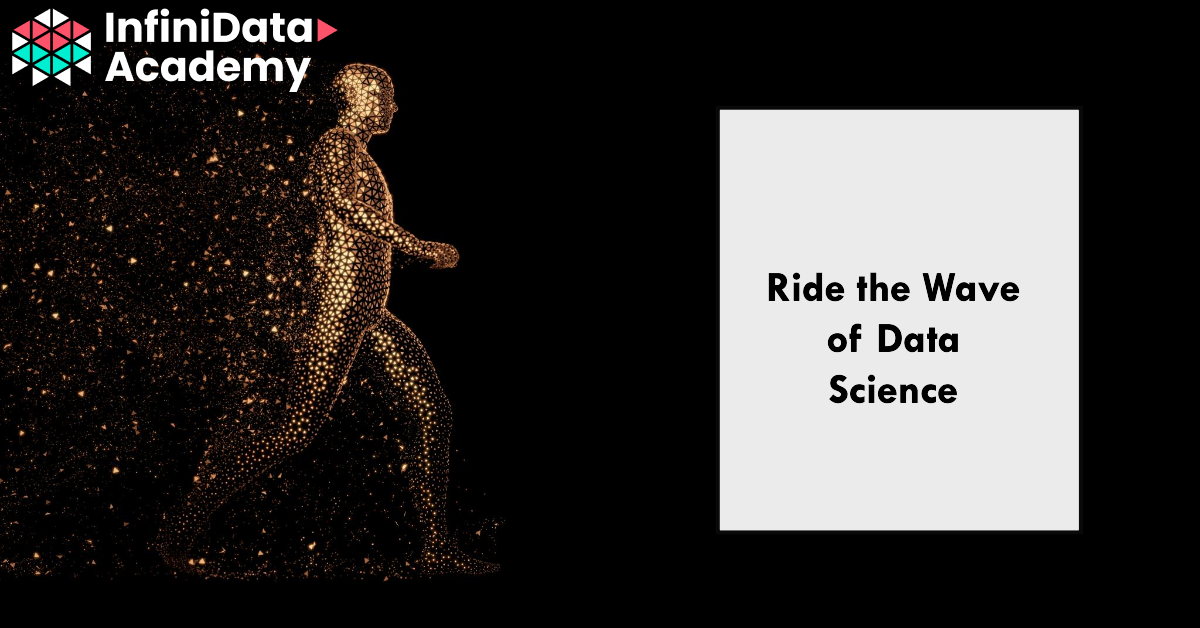In today’s digital age, data has become the lifeblood of innovation, decision-making, and competitive advantage. With the explosion of data from various sources, the field of analytics is transforming industries, driving growth, and creating a multitude of career opportunities. For those looking to ride the data wave, now is the perfect time to explore a career in analytics.
https://infinidataacademy.com/our-courses/The Rise of Big Data
The sheer volume of data generated every day is staggering. From social media interactions and online shopping habits to IoT devices and enterprise software, the amount of data being produced is unprecedented. This explosion of data has given rise to the field of big data analytics, where professionals analyze complex datasets to uncover patterns, trends, and insights that can inform strategic decisions.
Why Choose a Career in Analytics?
- High Demand for Talent: Companies across industries are investing heavily in analytics to drive their decision-making processes. This has created a high demand for skilled professionals who can interpret data and provide actionable insights.
- Competitive Salaries: The demand for data professionals far exceeds the supply, leading to competitive salaries and attractive compensation packages for those with the right skill set.
- Diverse Opportunities: Analytics careers span a wide range of roles and industries, from healthcare and finance to marketing and technology. Whether you are interested in becoming a data scientist, business analyst, or machine learning engineer, there are ample opportunities to find a niche that suits your interests and skills.
- Impactful Work: By transforming raw data into meaningful insights, analytics professionals play a critical role in shaping business strategies, improving operational efficiency, and driving innovation.
Key Roles in Analytics
- Data Scientist: Often dubbed the “sexiest job of the 21st century,” data scientists use advanced statistical methods, algorithms, and machine learning to analyze and interpret complex data. They are adept at programming languages such as Python and R and possess strong analytical and problem-solving skills.
- Data Analyst: Data analysts are responsible for collecting, processing, and performing statistical analyses on large datasets. They create visualizations and reports to help organizations make data-driven decisions.
- Business Analyst: Business analysts bridge the gap between IT and business, using data analytics to assess processes, determine requirements, and deliver data-driven recommendations and reports to executives and stakeholders.
- Machine Learning Engineer: These professionals focus on designing and implementing machine learning models. They work with large datasets to train algorithms and build systems that can learn and make predictions or decisions without human intervention.
- Data Engineer: Data engineers build and maintain the infrastructure needed to store, process, and analyze large datasets. They develop pipelines that ensure data is accessible, reliable, and ready for analysis by data scientists and analysts.
Essential Skills for a Career in Analytics
- Technical Proficiency: Proficiency in programming languages such as Python, R, SQL, and tools like Hadoop and Spark is crucial. Familiarity with data visualization tools like Tableau or Power BI can also be advantageous.
- Statistical Knowledge: A strong understanding of statistical methods and techniques is essential for analyzing data accurately and effectively.
- Problem-Solving Abilities: The ability to approach complex problems methodically and think critically is key in uncovering insights from data.
- Communication Skills: The ability to communicate findings clearly and effectively to non-technical stakeholders is crucial for driving data-driven decisions.
- Business Acumen: Understanding the business context and industry-specific challenges helps in interpreting data and making relevant recommendations.
How to Get Started
- Education and Training: Pursue degrees in fields such as data science, statistics, computer science, or engineering. Many universities and online platforms offer specialized courses and certifications in data analytics and related fields. You can visit InfiniData Academy for any query and assistance.
- Build a Portfolio: Gain practical experience by working on projects, participating in internships, or contributing to open-source projects. Building a portfolio of work can demonstrate your skills to potential employers.
- Stay Updated: The field of analytics is constantly evolving. Stay updated with the latest trends, tools, and technologies by reading industry blogs, attending conferences, and joining professional associations.
- Networking: Join professional networks and communities to connect with industry experts, share knowledge, and discover job opportunities.
Conclusion
The age of analytics is here, and with it comes a wave of exciting career opportunities. Whether you are a seasoned professional or just starting, the field of analytics offers a dynamic and rewarding career path. By acquiring the right skills and staying abreast of industry trends, you can ride the data wave and make a significant impact in this data-driven world. So, dive in and explore the myriad possibilities that a career in analytics has to offer.

